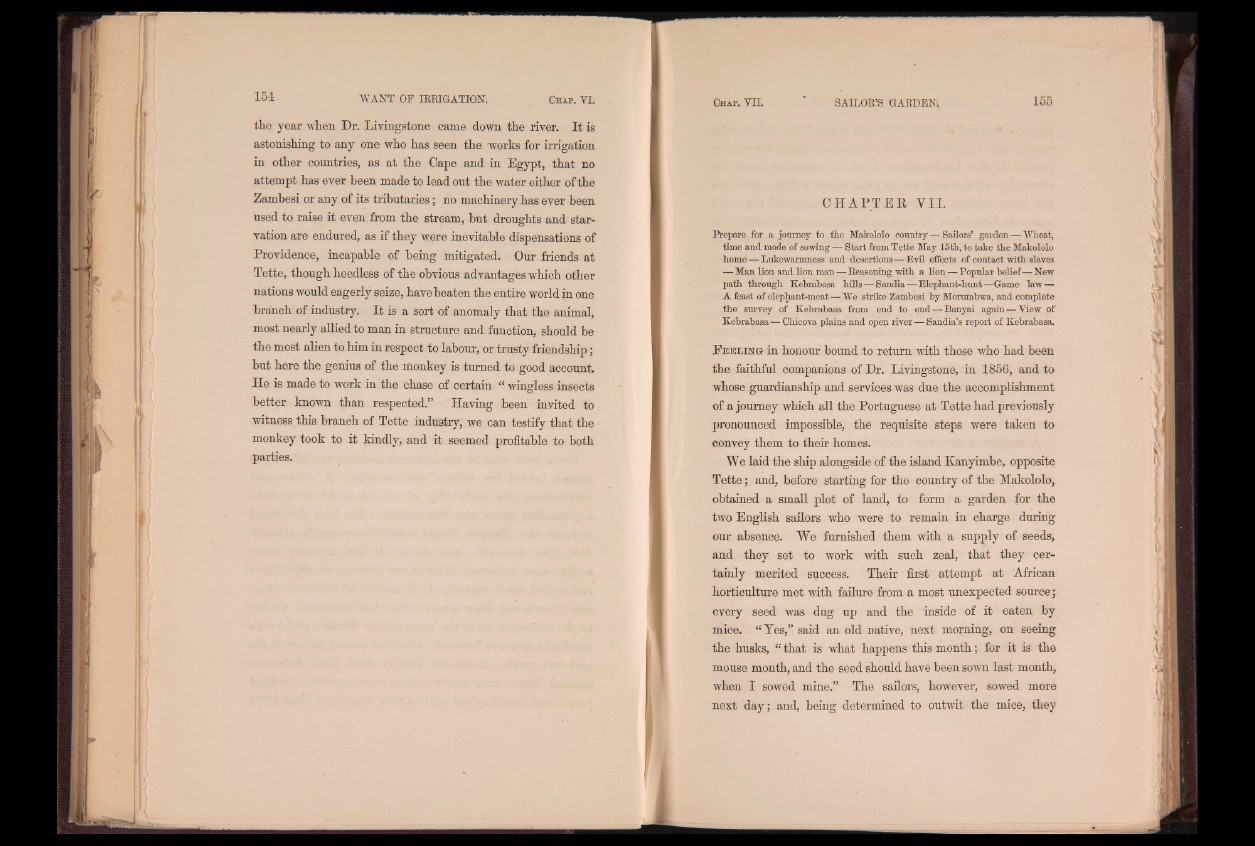
the year when Dr. Livingstone came down the river. I t is
astonishing to any one who has seen the works for irrigation
in other countries, as at the Cape and in Egypt, that no
attempt has ever been made to lead out the water either of the
Zambesi or any of its tributaries; no machinery has ever been
used to raise it even, from the stream, but droughts and starvation
are endured, as if they were inevitable dispensations of
Providence, incapable of being mitigated. Our friends at
Tette, though heedless of the obvious advantages which other
nations would eagerly seize, have beaten the entire world in one
branch of industry. I t is a sort of anomaly that the animal,
most nearly allied to man in structure and function, should be
the most alien to him in respect to labour, or trusty friendship;
but here the genius of the monkey is turned to good account.
He is made to work in the chase of certain “ wingless insects
better known than respected.” Having been invited to
witness this branch of Tette industry, we can testify that the
monkey took to it kindly, and it seemed profitable to both
parties.
C H A P T E R Y I I .
Prepare for a journey to the Makololo country — Sailors’ garden — Wheat,
time and mode of sowing — Start from Tette May 15th, to take the Makololo
home — Lukewarmness and desertions—Evil effects of contact with slaves
— Man lion and lion man—Reasoning with a lion — Popular belief—New
path through Kebrabasa hills—Sandia—Elephant-hunt—Game law —
A feast of elephant-meat—We strike Zambesi by Morumbwa, and complete
the survey of Kebrabasa from end to end—Banyai again—Yiew of
Kebrabasa—Chicova plains and open river — Sandia’s report of Kebrabasa.
F e e l in g in honour bound to return with those who had been
the faithful companions of Dr. Livingstone, in 1856, and to
whose guardianship and services was due the accomplishment
of a journey which all the Portuguese at Tette had previously
pronounced impossible, the requisite steps were taken to
convey them to their homes.
We laid the ship alongside of the island Kanyimbe, opposite
Tette; and, before starting for the country of the Makololo,
obtained a small plot of land, to form a garden for the
two English sailors who were to remain in charge during
our absence. We furnished them with a supply of seeds,
and they set to work with such zeal, that they certainly
merited success. Their first attempt at African
horticulture met with failure from a most unexpected source;
every seed was dug up and the inside of it eaten by
mice. “ Yes,” said an old native, next morning, on seeing
the husks, “ that is what happens this month; for it is the
mouse month, and the seed should have been sown last month,
when I sowed mine.” The sailors, however, sowed more
next day; and, being determined to outwit the mice, they